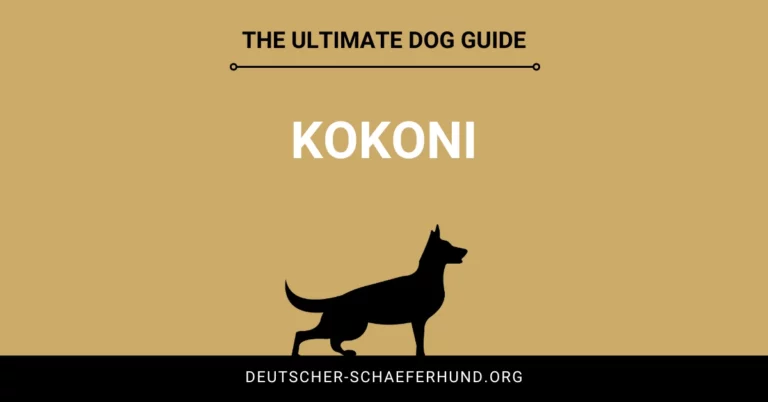Introduction
The Kokoni, also known as the Greek Small Dog, is a small yet resilient breed known for its cheerful disposition and loyalty to its owners. These friendly dogs are natives of Greece and are beloved pets in many homes worldwide due to their adaptability and love for human companionship. Roots of the Kokoni can be traced back to ancient Greece, where depictions of the breed have been found in pottery and fresco dating back several centuries. This affirms Kokoni’s status as one of the oldest domesticated dog breeds.
| Attribute | Details |
|---|---|
| Origin | Greece |
| Breed Group | Companion Dogs |
| Size | Small |
| Weight Range | 4-8 kg |
| Height at Shoulder | 28-35 cm |
| Lifespan | 12-15 years |
| Coat Type | Medium-length, Thick |
| Exercise Needs | Moderate |
| Diet | High-quality dog food with fresh fruits and vegetables |
| Temperament | Intelligent, Lively, Sociable |
| Suitability | Families, Singles, Seniors, Apartments |
Characteristics of the Kokoni
Physical attributes
A small breed, the Kokoni typically weighs between 4 and 8 kilograms and stands about 28 to 35 cm at the shoulder. They possess a compact body, a well-proportioned head, and a long, bushy tail that curls over their back.
Temperament and personality traits
Kokonis are known for their intelligence, liveliness, and playfulness. They are extremely friendly and sociable dogs, making them excellent family pets. The Kokoni is also known for its keen senses, particularly its hearing, which makes it a good watchdog.
Lifespan and health considerations
Typically, a healthy Kokoni can live between 12 to 15 years. They are generally a robust breed with few health issues. However, owners should be attentive to potential issues such as hip dysplasia, dental disease, and obesity.
Caring for a Kokoni
Dietary needs
A balanced diet is key to maintaining Kokoni’s overall health. Owners should provide a diet that includes high-quality dog food, fresh fruits, and vegetables, but remember to avoid food items harmful to dogs, like chocolate and grapes.
Exercise and playtime requirements
Despite their small size, Kokonis require regular exercise to maintain their health and happiness. This could include daily walks, play sessions, or even agility training.
Grooming and hygiene
Kokonis has a thick, medium-length coat that requires regular grooming to keep it healthy and free of matting. Brushing their teeth and trimming their nails are other aspects of their hygiene routine.
Training a Kokoni
Training requirements and techniques
Given their intelligence and eager-to-please nature, Kokonis are typically easy to train. Consistent, positive reinforcement techniques work best with this breed.
Socialization needs
Early socialization is vital for Kokoni. Introducing them to different environments, people, and animals can help develop their sociable and confident nature.
Dealing with common behavioral issues
Kokonis are generally well-behaved dogs. However, like any breed, they can develop behavioral issues. This can often be mitigated through consistent training and socialization.
The Kokoni and Your Family
Compatibility with children and other pets
Kokonis are known for their love of human companionship, making them great pets for families with children. Their sociable nature also means they usually get along well with other pets.
How to introduce a Kokoni to your home
When introducing a Kokoni to a new home, it’s crucial to make them feel safe and comfortable. Give them their own space with a cozy bed and toys.
Considerations for first-time dog owners
Their sociable nature, combined with a moderate activity level and easy grooming, makes the Kokoni a great choice for first-time dog owners.
Finding a Kokoni
Tips for Selecting a reputable breeder
When looking for a Kokoni, it’s important to choose a reputable breeder who prioritizes health and temperament over appearance.
Adopting a Kokoni from a rescue or shelter
Adoption is a great option for those who want to provide a loving home to a Kokoni in need. Contact local shelters or breed-specific rescue groups to inquire about any available Kokonis.
Price considerations
The price of a Kokoni can vary based on factors like the breeder’s reputation, location, and the puppy’s lineage.
Living with a Kokoni
The day-to-day experience of owning a Kokoni
Living with a Kokoni is a joyous experience. Their loyalty, friendliness, and playful nature make each day a unique experience.
Stories and anecdotes from real Kokoni owners
One of the best ways to understand what it’s like to live with a Kokoni is to hear from those who already own one. These stories often highlight the breed’s intelligence, sociability, and affectionate nature.
Common challenges and solutions
Like all dogs, Kokonis can have their quirks and challenges. These might include stubbornness or an inclination to bark. Patience, consistency, and positive reinforcement training can help overcome these issues.
Environment Suitability for the Kokoni
Living conditions for a Kokoni
The Kokoni is an adaptable breed that can thrive in a variety of living conditions. They’re equally at home in an apartment as they are in a house with a large backyard. However, like all dogs, they do need their outdoor time for exercise and mental stimulation.
The Kokoni in different climates
Originating in Greece, the Kokoni is generally comfortable in warmer climates. However, with proper care and precautions, they can adapt to colder climates as well. Owners should be mindful of extreme temperatures and adjust their care routine as necessary.
The Kokoni and Travel
Traveling with your Kokoni
Their small size makes Kokonis great travel companions. They’re usually comfortable on road trips, and can even handle air travel, provided all airline regulations for traveling with pets are followed.
Preparing your Kokoni for travel
Proper preparation can make travel with your Kokoni smoother. This includes getting them accustomed to their travel carrier, ensuring they’re updated on vaccinations, and packing necessary supplies.
Special Care Considerations for the Kokoni
The Kokoni and allergies
Some Kokonis may be prone to allergies, which can manifest as skin irritations or gastrointestinal issues. Regular vet checkups can help identify and manage any potential allergies.
Senior Kokoni care
As Kokonis age, their care needs can change. Senior Kokonis may require changes in diet, more frequent health check-ups, and adjustments in their exercise routine to accommodate for any decrease in mobility.
Fun Activities for the Kokoni
Games to play with your Kokoni
Kokonis love to play and engage in activities with their families. Games like fetch, hide-and-seek, or agility-based exercises can be fun and stimulating for these intelligent dogs.
Involving your Kokoni in dog sports
Due to their agility and intelligence, Kokonis may excel in dog sports such as agility trials or obedience competitions. Participating in these activities can provide mental and physical stimulation, strengthening the bond between you and your pet.
Conclusion
From their cheerful and sociable nature to their adaptability and moderate maintenance needs, there are plenty of reasons why the Kokoni might be the perfect addition to many families. If you’re looking for a small, affectionate, and intelligent companion, the Kokoni may just be the breed for you. Its long history and universal traits make it a breed worth considering.



